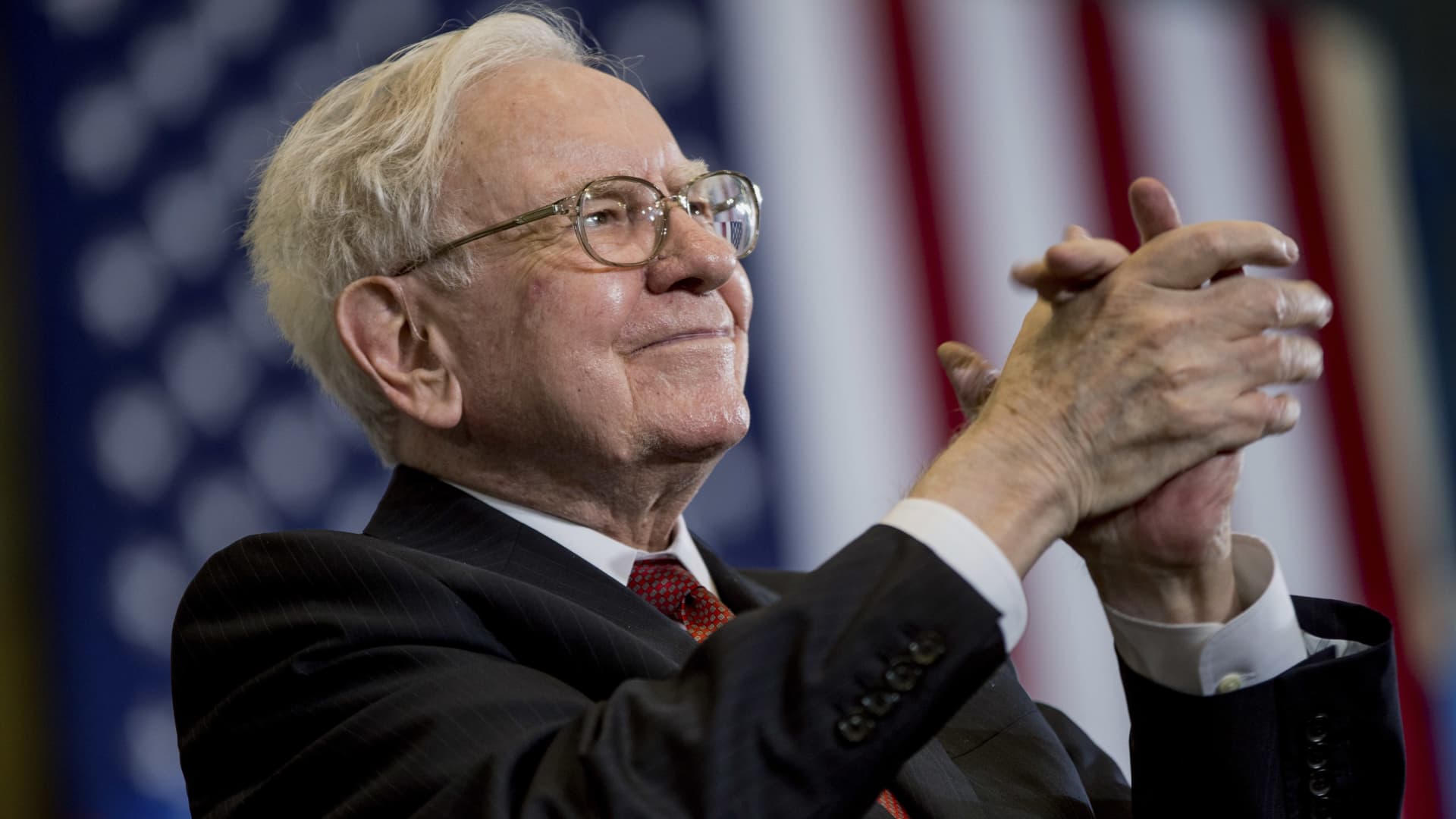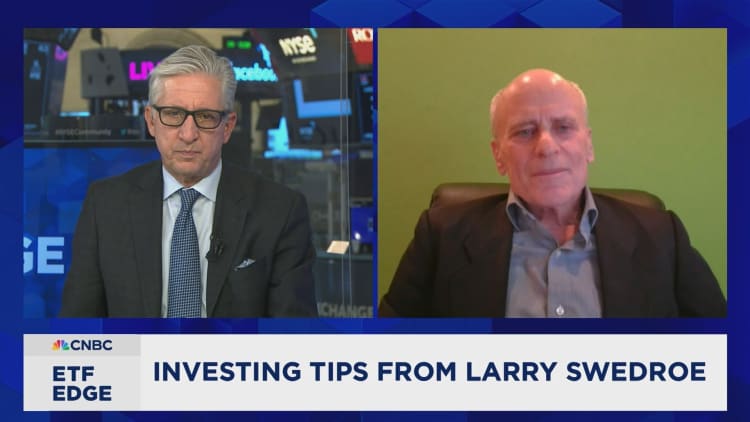Larry Swedroe, who is considered one of the market’s most esteemed researchers, thinks Warren Buffett’s investment style doesn’t work well anymore.
He cites the number of professional Wall Street firms and hedge funds now participating in the market.
“Warren Buffett was generally considered the greatest stock picker of all time. And, what we have learned in the academic research is Warren Buffett really was not a great stock picker at all,” Swedroe told CNBC’s “ETF Edge” this week. “What Warren Buffett’s ‘secret sauce’ was, he figured out 50, 60 years before all the academics what these factors were that allowed you to earn excess returns.”
Swedroe indicated index funds can help investors trying to mimic Buffett’s performance.
“[Investor] Cliff Asness and the team at AQR did some great research and showed that what you accounted for the leverage Buffett applied through his reinsurance company. If you bought an index of stocks that had these same characteristics, you would have matched Buffett’s returns virtually,” said Swedroe. “Now today, every investor can own through ETFs or mutual funds the same types of stocks that Buffett has bought through companies that apply this academic research — companies like Dimensional, AQR, Bridgeway, BlackRock, Alpha Architect and a few others.”
Swedroe is the author and co-author of almost 20 books — including “Enrich Your Future – The Keys to Successful Investing” released in February.
In an email to CNBC, he called it “a collection of stories and analogies … that help investors understand how markets really work, how prices are set, why it is so hard to persistently outperform through active management [stock picking and market timing,] and how human nature leads us to make investment mistakes [and how to avoid them].”
During his “ETF Edge” interview,’ Swedroe added investors can also benefit from momentum trading. He contends market timing and stock picking often don’t factor into long-term success.
“Momentum certainly is a factor that has worked over the long term, although it does go through some long periods like everything else will underperform. But momentum does work,” said Swedroe, who’s also the head of economic and financial research at Buckingham Wealth Partners. “It’s purely systematic. Computers can run it, you don’t need to pay big fees and you can access it with cheap momentum.”
In his latest book, Swedroe likens the stock market to sports betting and active managers to bookies. He suggests more investors “play” —or invest — the more likely they are to underperform.
“Wall Street needs you to trade a lot so they can make a lot of money on bid offer spreads. Active managers make more money by getting you to believe that they’re likely to outperform,” said Swedroe. “It’s virtually impossible mathematically for that to happen because they just have higher expenses including higher taxes. They just need you to play, and so, you know, that’s why they tell you active management’s a winner’s game.”

 Blog Post1 week ago
Blog Post1 week ago
 Economics1 week ago
Economics1 week ago
 Finance1 week ago
Finance1 week ago
 Economics1 week ago
Economics1 week ago
 Economics1 week ago
Economics1 week ago
 Personal Finance1 week ago
Personal Finance1 week ago
 Accounting1 week ago
Accounting1 week ago
 Economics1 week ago
Economics1 week ago










